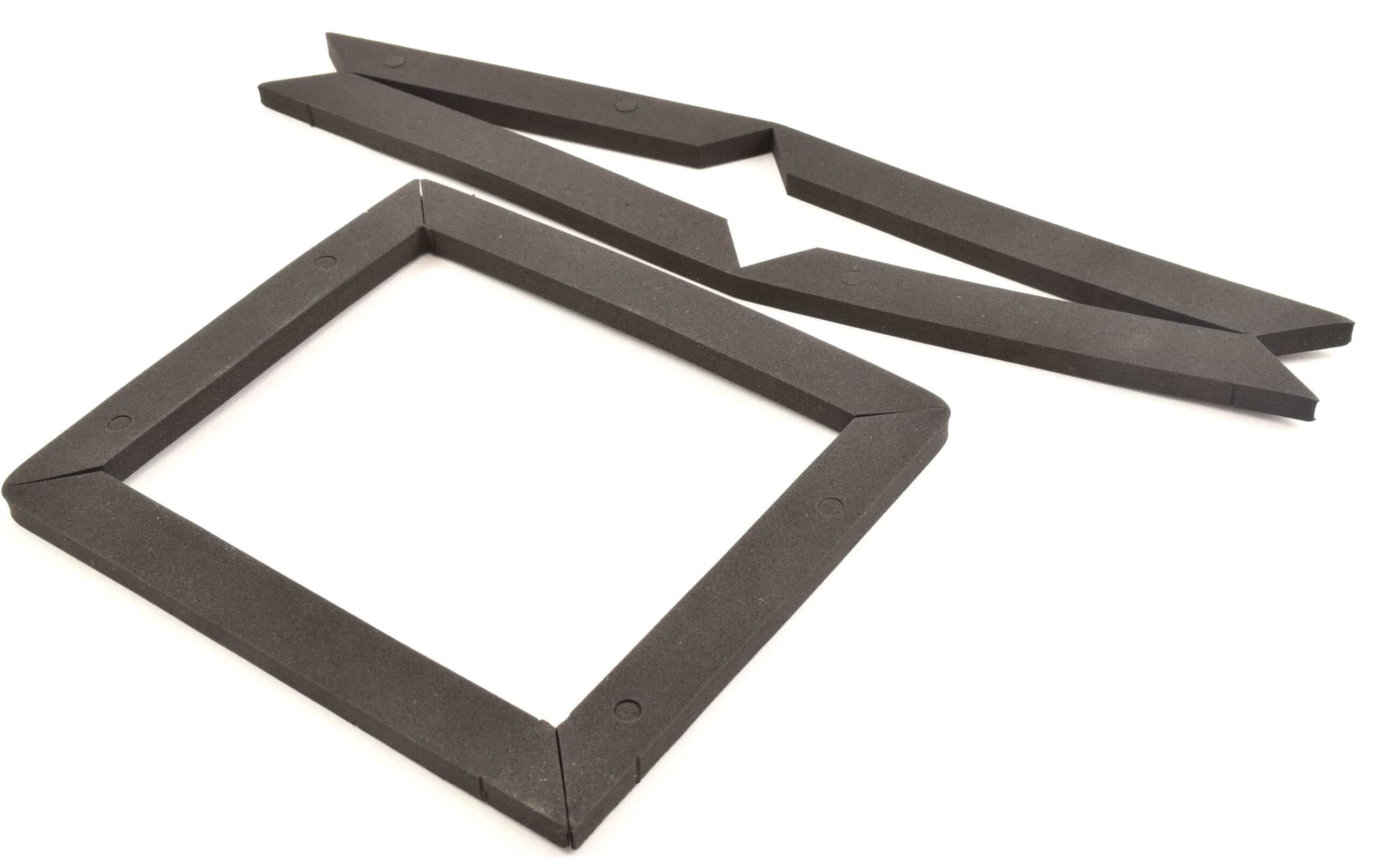
Closed-cell foam is a type of foam material characterized by its structure of tightly packed, sealed cells filled with gas. This configuration renders the foam impermeable to air and water, enhancing its rigidity and durability.
Closed-cell foam is integral to modern manufacturing, offering various properties that help enhance efficiency and quality across multiple industries, such as aerospace, construction, and HVAC. Below, this blog will explore the importance of closed-cell foam manufacturing and various closed-cell foam applications.
Closed-Cell Foam Properties
What makes closed-cell foam a versatile material is its various properties, such as:
- High Density: Closed-cell foams are typically denser than open-cell foams due to the tightly packed cells.
- Water Resistance: The closed cells create a barrier, significantly reducing water absorption. This makes them resistant to moisture and ideal for applications in wet environments.
- Vapor Barrier: Closed-cell foams act as effective vapor barriers, preventing the passage of moisture vapor. This is crucial for insulation and preventing condensation.
- High R-Value: Due to the trapped air within the closed cells, they offer excellent thermal insulation properties, resulting in high R-values.
- Rigidity and Strength: The closed-cell structure provides greater rigidity and compressive strength than open-cell foams.
- Sound Absorption: While not as effective as some open-cell foams, closed-cell foams can still provide some sound absorption properties.
Applications in the Aerospace Industry
Over the last year, American Flexible Products has partnered with numerous companies in the aerospace industry to produce custom products.
Lightweight structural components
The properties of closed-cell foam, which involves lightweight yet strong parts, are perfect for applications in the aerospace industry. For aerospace manufacturers, reducing the weight of aircraft components is key to improving fuel efficiency and overall aircraft performance. That’s where the lightweight construction of closed-cell foam comes in handy in applications such as honeycomb structures and creating core materials for sandwich panels.
Additionally, American Flexible Products uses closed-cell foam to manufacture gaskets and seals, such as fuel systems and hydraulic lines. Closed-cell foam’s impermeability makes it ideal for providing practical barriers against liquids and gasses, helping to maintain system integrity.
Thermal and Acoustic Insulation
Other closed-cell foam properties, such as thermal insulation, are also useful in protecting aircraft against temperature fluctuations in the aerospace industry. Closed-cell foam manufacturing is essential to help maintain cabin comfort and protect against plane temperature extremes. Closed-cell foam materials are also used to create vibration damping and isolators. This helps to enhance the longevity of equipment and maintain reliability by mitigating vibrational impacts.
American Flexible Products is experienced in manufacturing closed-cell foam for thermal insulation. We produce insulation components from closed-cell foam that offer superior thermal resistance for applications such as HVAC systems, automotive, and marine industries.
Applications in Building & Construction
Closed-cell foam is one of the most common industrial foam materials used in building and construction to support energy efficiency in buildings. Closed-cell foam provides excellent insulation, reducing heat transfer and helping to improve energy savings. Additionally, it is used to help improve indoor comfort due to its noise-reducing properties.
Closed-cell foam can also create vibration dampeners and isolators for various applications, such as machinery mounts. This can ultimately help improve equipment lifespan and occupant comfort.
Applications in the HVAC Industry
Within the HVAC industry, closed-cell foam also has many versatile roles. For example, it can be used to minimize heat loss or gain during air distribution within HVAC ductwork. It also reduces energy consumption to mitigate mold growth and system damage.
Another closed-cell foam application in HVAC is to help insulate refrigeration units, freezers, and cold storage facilities. The foam minimizes heat transfer to help maintain more stable temperatures. Lastly, closed-cell foam can also insulate air handler enclosures and reduce noise and vibration transmission. This helps maintain consistent temperatures to extend lifespan and enhance overall performance.
Explore Closed-Cell Foam Applications
Endless closed-cell foam applications can help enhance efficiency and quality across various industries. Industrial foam materials have many important uses, from improving fuel efficiency in aerospace applications to being used in construction as insulation for walls. This material is a great choice for these applications as it is lightweight, strong, resistant to chemicals and moisture, and provides excellent insulation and vibration damping.
As an expert in closed-cell foam manufacturing, American Flexible Products is here to help. Contact us today to explore closed-cell foam applications for your industry.




